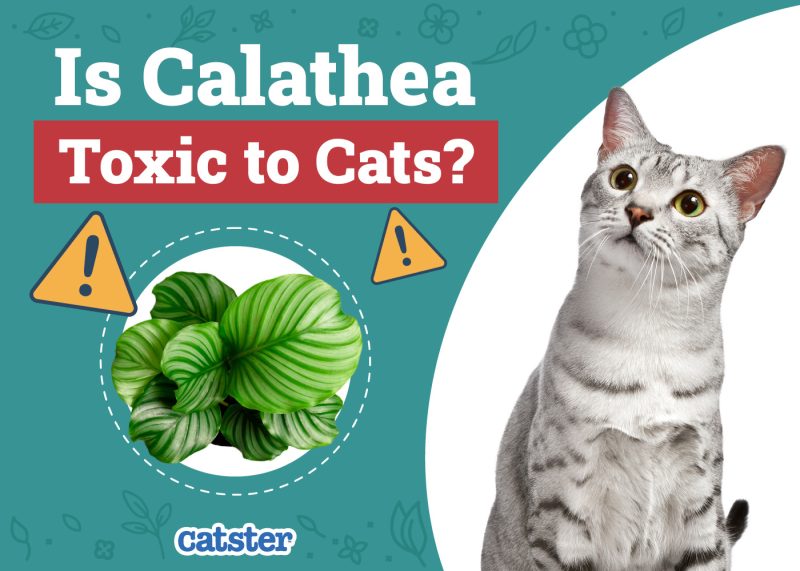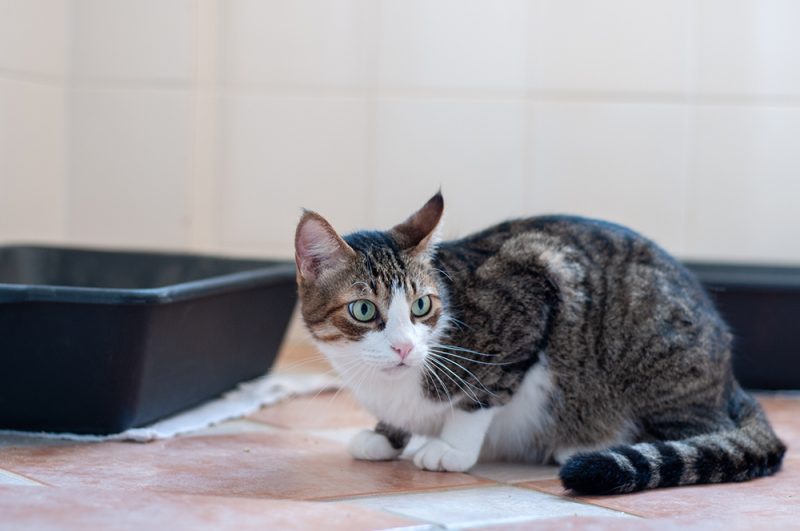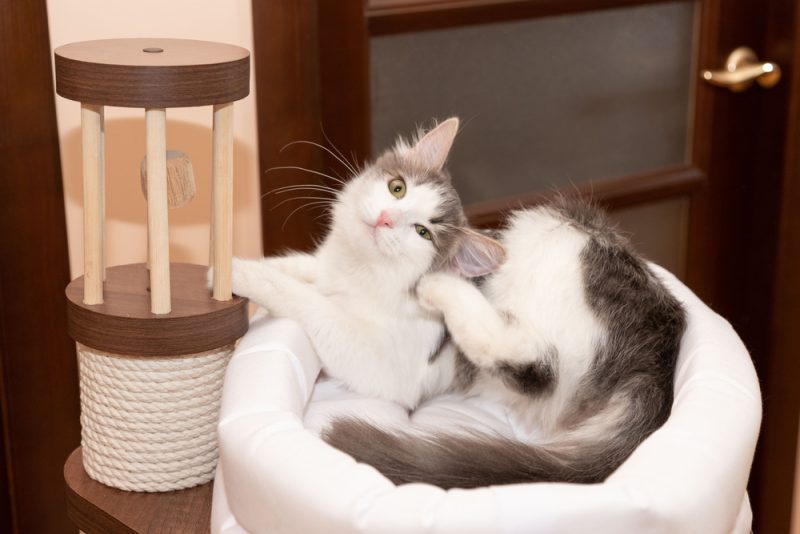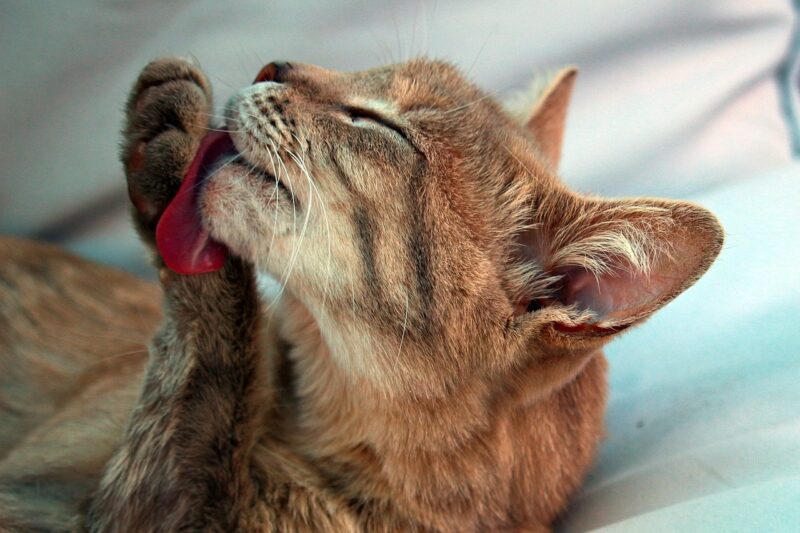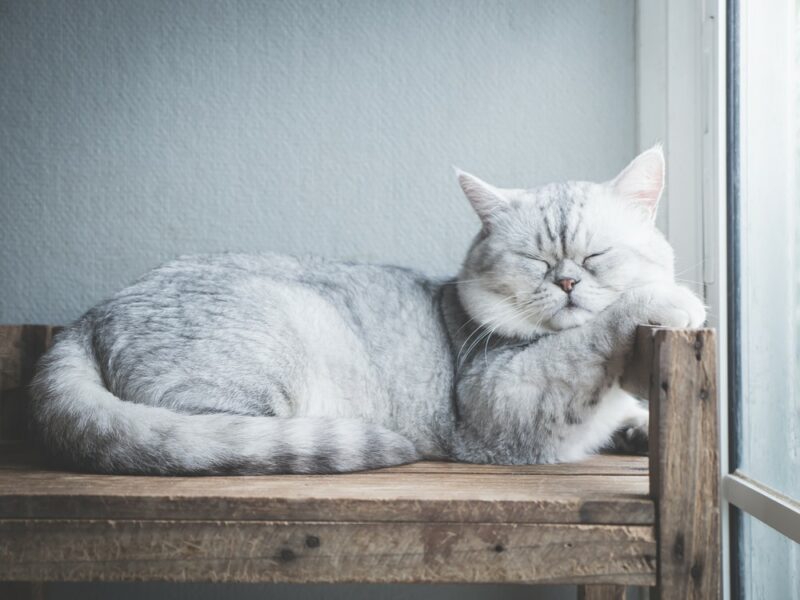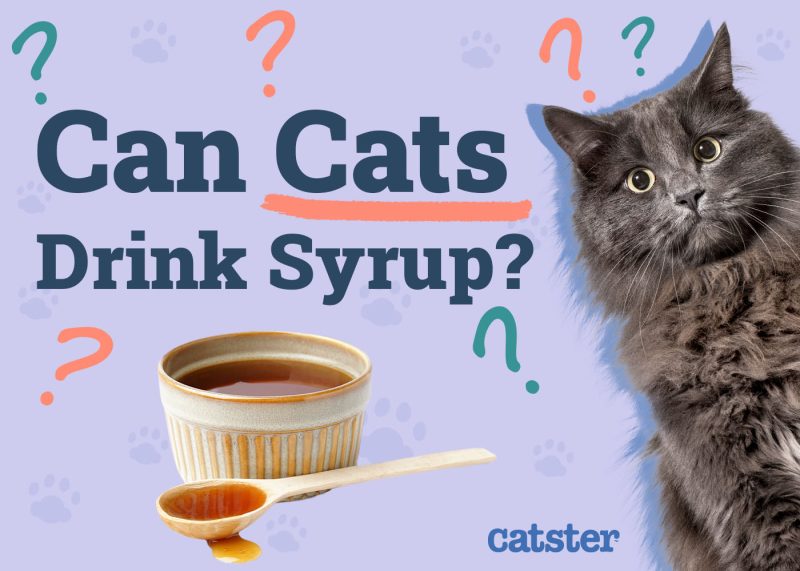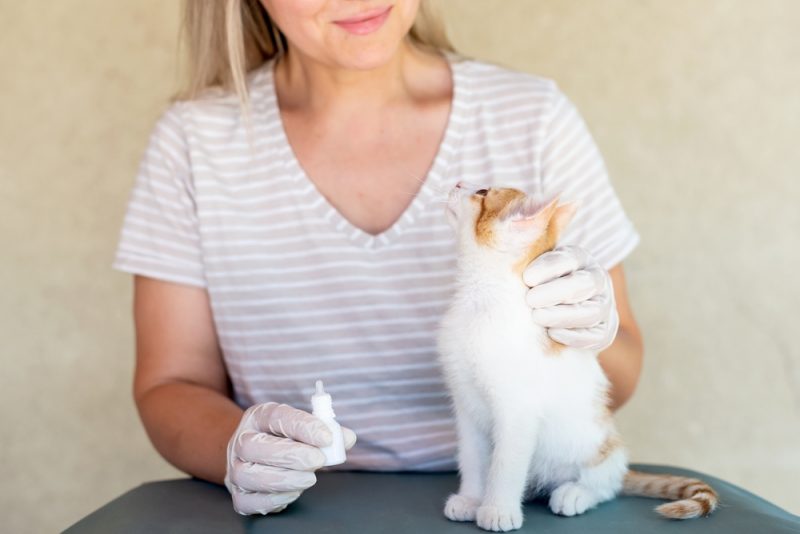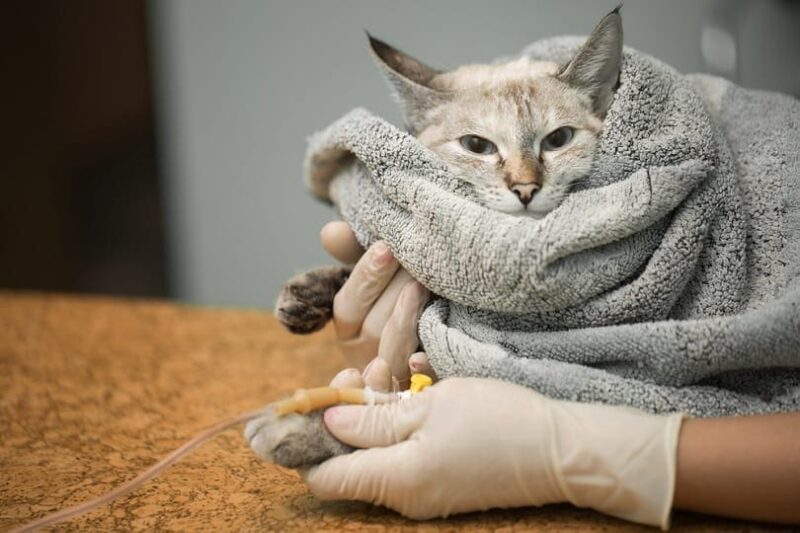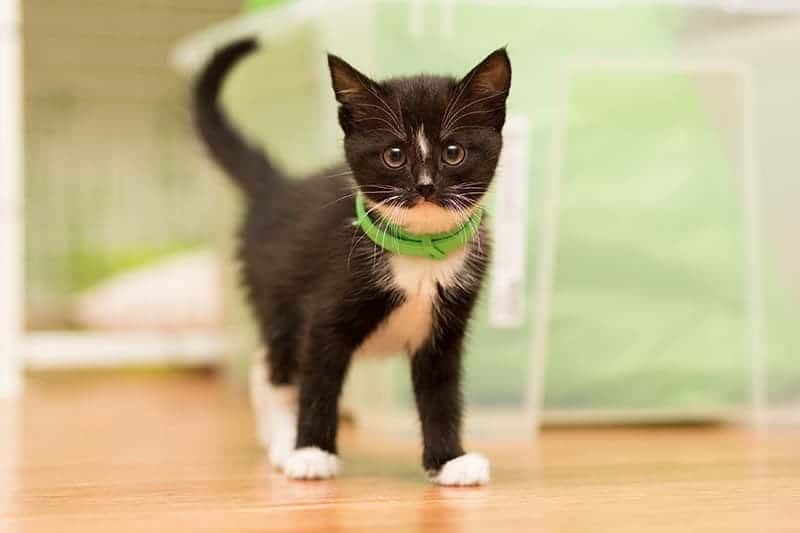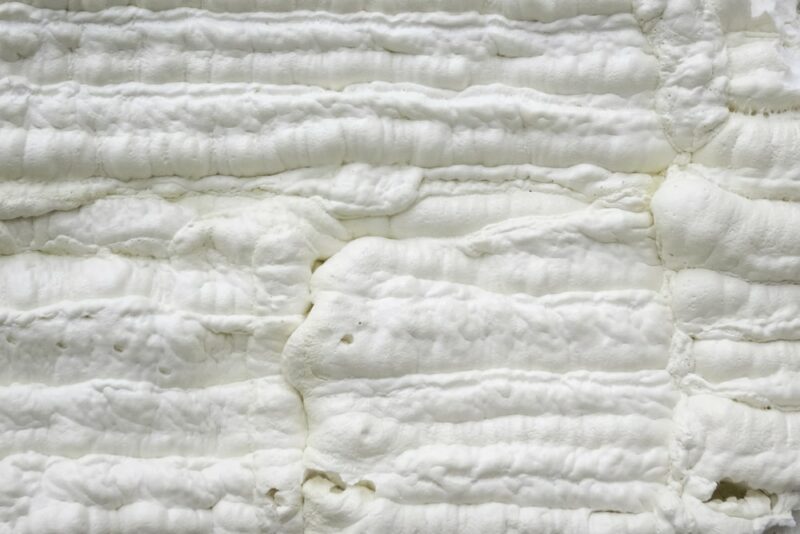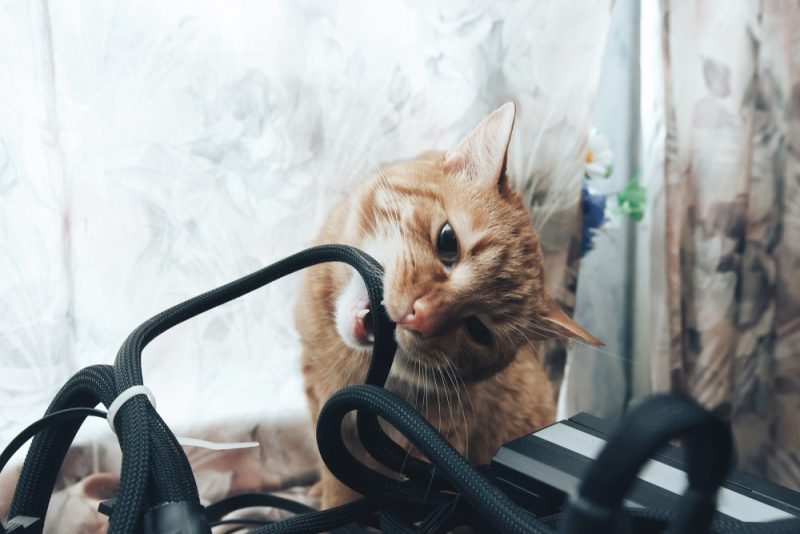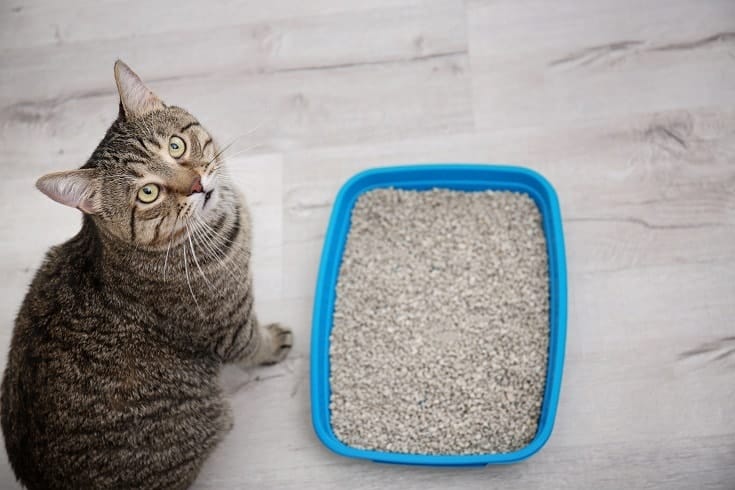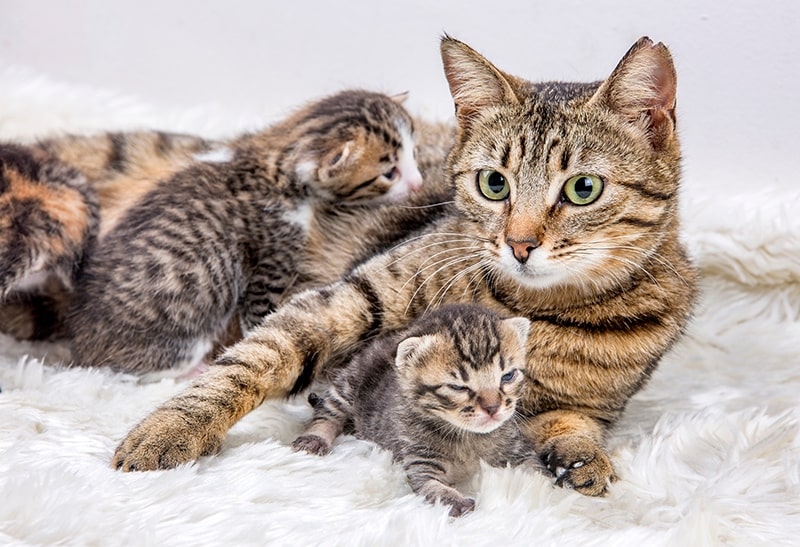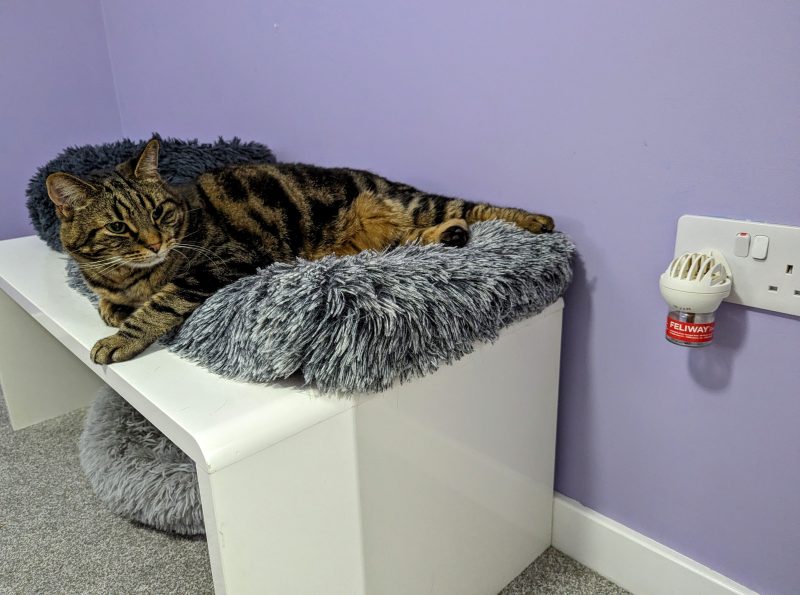Animal lovers looking to feather their nests with some greenery should be cautious about which plants they bring into their homes. Our furry friends, especially our cats, love to chew on plant leaves, and they can easily become sick if the plants are toxic to animals.
A common plant that is often recommended for newbie houseplant owners is the Calathea. Cautious pet parents will want to know if Calathea is toxic to cats, and the answer is simple: No, your cat will not become sick from the Calathea.
Read on to learn more about this beautiful non-toxic plant, as well as some other plants that are safe to have in your home along with your furry pals.

What Is a Calathea?
The calathea is an attractive plant that brings a lush greenness to any space. It has large multicolored leaves—usually green with hints of white, pink, orange, or red, and a vibrant purple underside. In the wild, these plants produce white, yellow, or purple flowers, but they are unlikely to flower in an indoor environment.
Calathea are not toxic to cats, dogs, or horses, so they are a must-have for any animal lover with a green thumb.
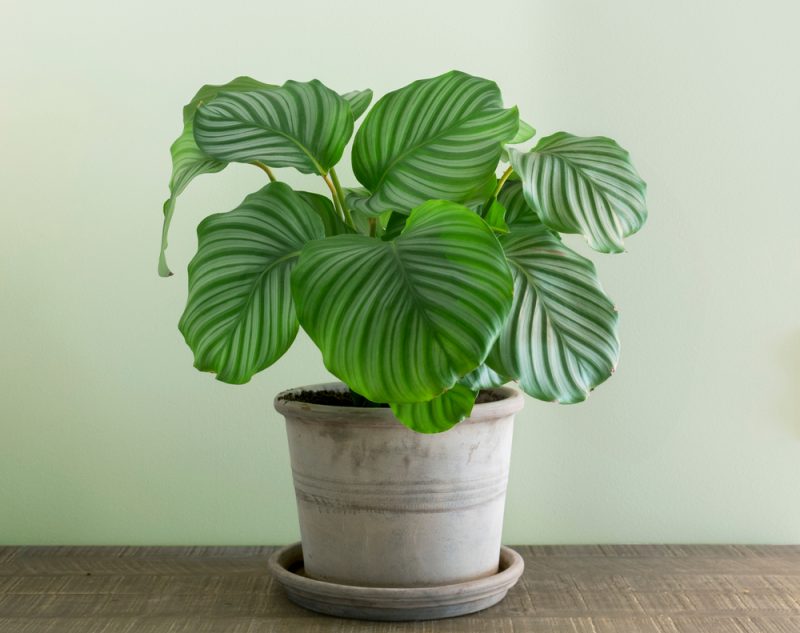
What Are Some Other Popular Non-Toxic Houseplants?
Whether you’re looking to add more greenery to your home, or you just brought home a new cat to an apartment full of already-established houseplants, it’s important to know which plants are non-toxic to cats.
An additional thought to bear in mind is that, while these plants are non-toxic to your cat, gastrointestinal upset is possible if your cat eats any kind of plant.
Other Non-Toxic Houseplants:
- Anthericum comosum – Usually known as a spider plant, this beauty is non-toxic to cats, while also being incredibly low maintenance in terms of plant care. This plant has long ribbon-like green leaves with a white stripe, and they thrive in a variety of conditions. You won’t need to worry about your cat becoming ill if they choose to gnaw on the leaves of the spider plant.
- Phyllostachys aurea – This sustainable plant is also known by its more common names of golden bamboo or fishpole bamboo. This plant usually appears in gardens because of its hardiness. It is fast-growing and can become an invasive species if left unchecked, so be aware that you will need to trim it back often. And it is non-toxic to cats.
- Nephrolepis exalta – Another popular plant that is non-toxic to your cat is the Boston fern. The fronds consist of a center rib with little leaflets on either side that can reach lengths of anywhere between 20-98 inches. It’s often grown in hanging baskets, putting it out of your cat’s reach—unless you have a high-flying daredevil, of course. In that case, we salute you and wish you dirt-free surfaces.
- Echeveria elegans – Commonly known as chickens and hens, these sage-colored succulents in a rosette shape are popular both as houseplants and in gardens. They are non-toxic to cats, as well as horses, and dogs.
- Schlumbergera – Christmas cactus, or Easter cactus, is a flowering cactus that has long interconnected leaf-like pads with flowers that appear at the joints between the pads and at the tips. In the Northern Hemisphere, they usually bloom during the winter months—hence the moniker, Christmas cactus. Your cat may be fascinated by their tendril-like appearance and flowers, but rest assured it is non-toxic to cats. So, you can breathe a little easier if your pet gets into this cactus.
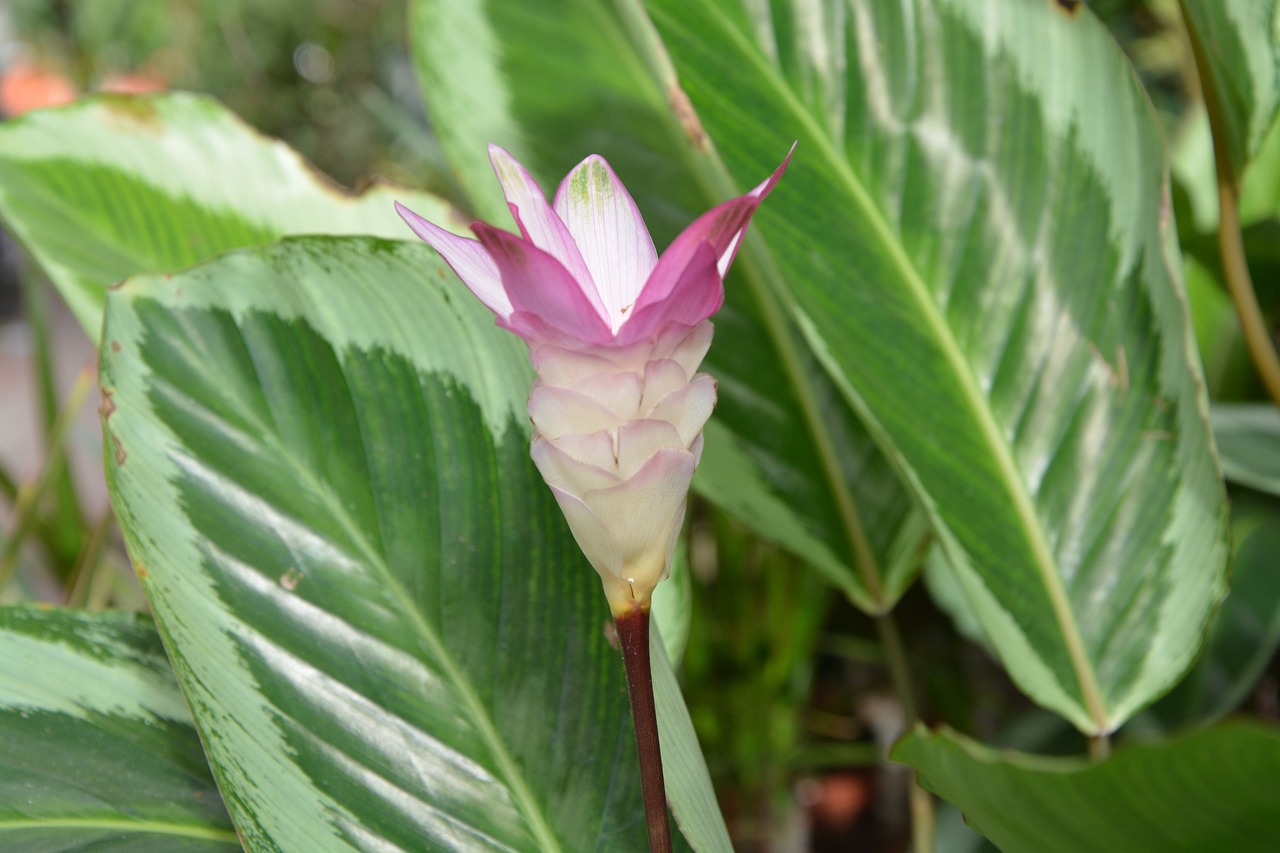
Common Toxic Plants to Avoid
We’ve covered some popular plants that are safe to have around cats in your home, but you’re probably wondering what plants you should steer clear of to prevent illness in your pet.
Common signs of toxicity in your pet are irritation and burning around the lips, tongue, mouth, vomiting, excessive drooling, problems swallowing, and overall oral irritation. If you see these signs and suspect your pet has eaten a toxic plant, call your veterinarian right away for an emergency appointment. While some plants only cause mouth and gastrointestinal tract irritation, some other plants are highly toxic to cats. Azalea ingestion can result in cardiac arrest, while lilies can cause kidney failure. If you suspect your cat ate a toxic plant, it is better to err on the side of caution and bring it to the veterinary clinic.
These are just a few of the houseplants that can be toxic to your cat. For many pet owners, the best option is to just avoid bringing home plants that could be potentially toxic to their pet, and to bring home only pet-friendly plants.
You might not always notice immediately if your cat has consumed something they shouldn’t have. So if you suspect your cat has ingested one of the above plants, it is important to watch your cat’s behavior afterward to see if they are showing any symptoms of irritability or poisoning.
If you need to speak with a vet but can't get to one, head over to PangoVet. It's an online service where you can talk to a vet online and get the advice you need for your pet — all at an affordable price!


Final Thoughts: Call the ASPCA Animal Poison Control
If you’re unsure if some of your houseplants are toxic to your favorite feline, the ASPCA has an Animal Poison Control website to check if your plants are toxic or non-toxic to your four-legged friends.
The ASPCA also has a phone number that is available 24/7, 365 days a year, to call if you suspect your pet has eaten a poisonous substance: (888) 426-4435. While there may be a consultation fee if you call the phone number, it is good to have on hand in the event that you cannot reach your local veterinarian.
See Also:
Featured Image Credit: Christina Dahl, Unsplash
